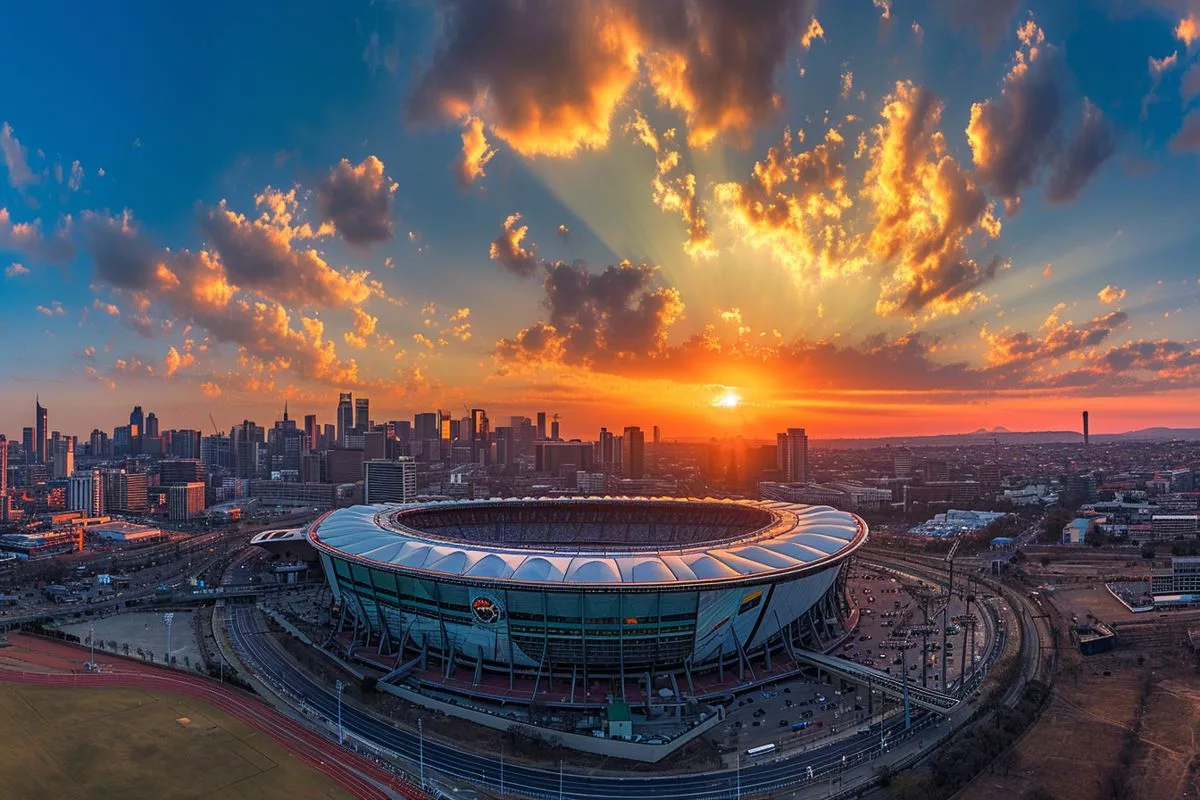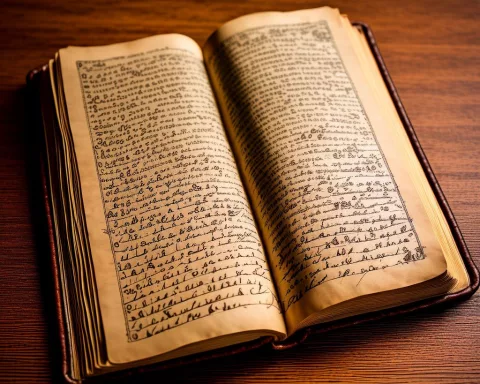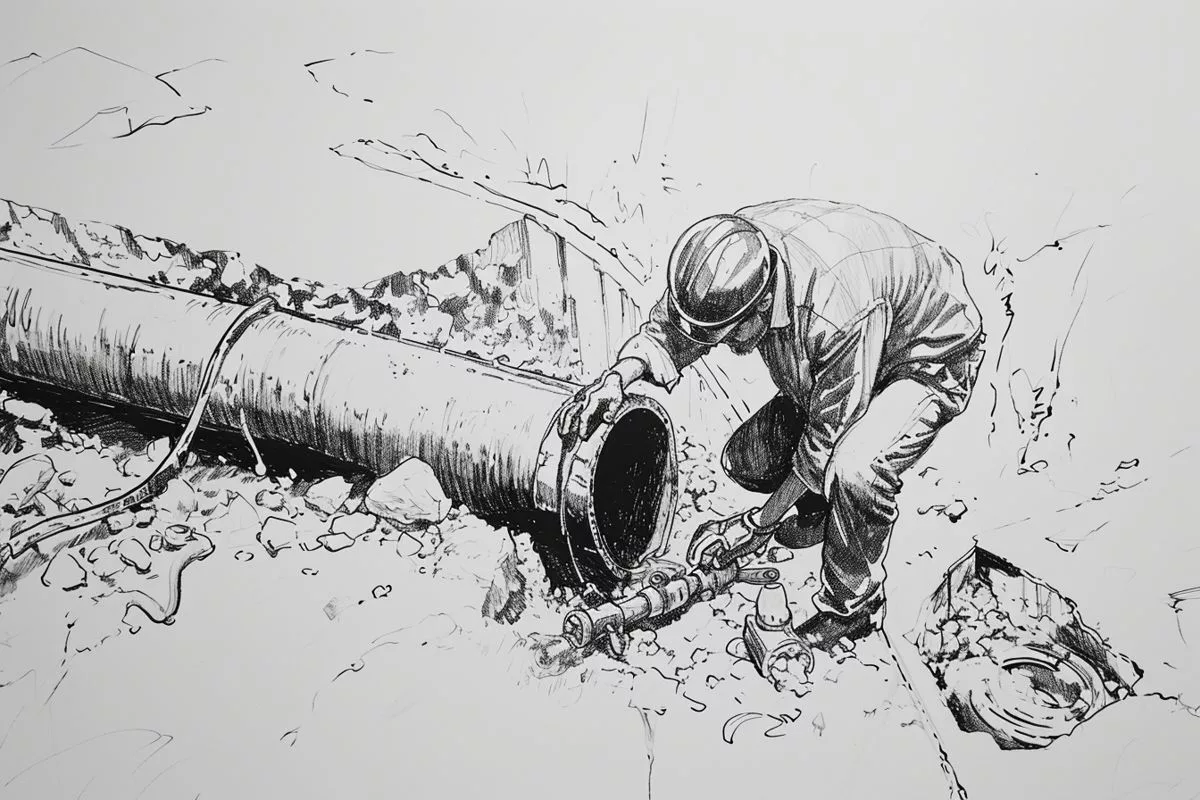The FNB Stadium in Johannesburg, also known as ‘The Calabash,’ is more than just a sports venue. It represents South Africa’s rich history and dynamic present, with its design echoing the continent’s traditions and artistic sensibilities. The stadium has been the stage for monumental events in both sports and political history, underscoring Johannesburg’s standing as a world-class city. It remains a beacon of national pride, encapsulating not just fans but the entire nation’s spirit.
In Johannesburg, the First National Bank Stadium stands tall and proud, representing South Africa’s rich history and dynamic present. Known affectionately as ‘The Calabash,’ this architectural marvel is more than just a sports venue; it encapsulates the country’s shared memories.
The Role of FNB
The FNB Stadium proudly displays the name of one of South Africa’s big four banks, First National Bank (FNB). However, it’s essential to note that FNB’s moniker is only due to a naming rights agreement and has no direct involvement in the stadium’s operations or inception.
The Significance of The FNB Stadium
The FNB Stadium’s importance lies in the stories it holds within its formidable walls. This gargantuan arena, Africa’s largest with a capacity of 94,736, has been the stage for monumental events in both sports and political history. The sound of the vuvuzelas from the 2010 FIFA World Cup Final still echoes in the air, mingling with the echoes of historic concerts and rallies that captivated global audiences. It underscores Johannesburg’s standing as a world-class city and a hotspot of cultural, political, and sporting happenings that reverberate across the globe.
A Symbol of African Brilliance
The stadium’s design isn’t just an aesthetic delight but a potent symbol of African brilliance. Its silhouette, mimicking a calabash, was deliberately chosen to echo the continent’s traditions and artistic sensibilities. As people stream into the stadium, they encounter a seamless transition between past and present, a physical manifestation of Africa’s journey.
A Shared Experience
The FNB Stadium’s reach is more localized but equally international, weaving a rich tapestry of shared athletic and cultural experiences. For instance, Cyprus may have its own sports infrastructure like the GSP Stadium, but its connection with South Africa stretches back to historical times under British rule.
A Cultural Symbol
The FNB Stadium also captures the digital imagination, frequently surfacing in social media discussions. Tweets extolling its significance, discussing events, or metaphorically referring to the venue highlight its role not just as a physical entity but also as a cultural symbol transcending geographical barriers.
As Johannesburg continues its dynamic evolution, the FNB Stadium remains a beacon of national pride. It encapsulates not just fans but the entire nation’s spirit. ‘The Calabash’ stands prepared, ready to host high-stakes football matches and momentous gatherings, reflecting South Africa’s past, present, and future.
1. What is the FNB Stadium in Johannesburg?
The FNB Stadium is a sports venue in Johannesburg, South Africa, also known as ‘The Calabash.’
2. What role does First National Bank (FNB) play in the FNB Stadium?
FNB’s moniker is only due to a naming rights agreement and has no direct involvement in the stadium’s operations or inception.
3. What is the significance of the FNB Stadium?
The FNB Stadium has been the stage for monumental events in both sports and political history, underscoring Johannesburg’s standing as a world-class city and a hotspot of cultural, political, and sporting happenings.
4. What is the design of the FNB Stadium?
The stadium’s design mimics a calabash, and it was deliberately chosen to echo the continent’s traditions and artistic sensibilities.
5. What is the cultural significance of the FNB Stadium?
The FNB Stadium is not just a physical entity but also a cultural symbol transcending geographical barriers, reflecting South Africa’s past, present, and future.












